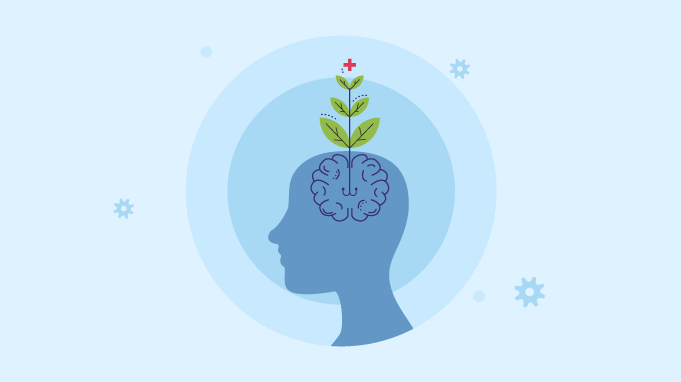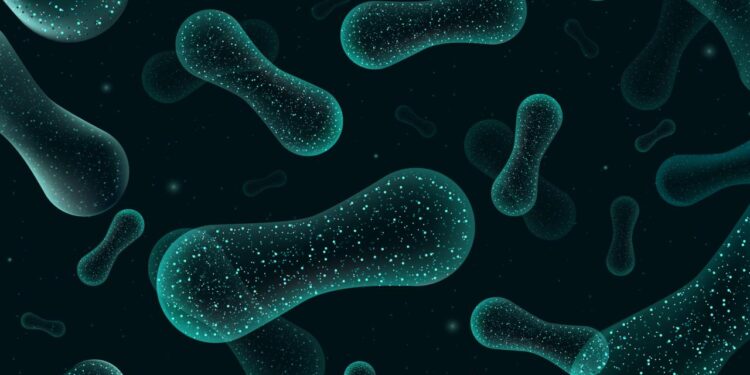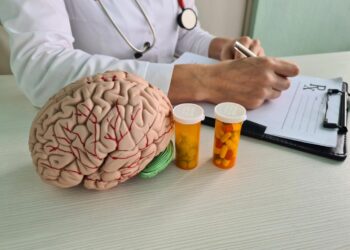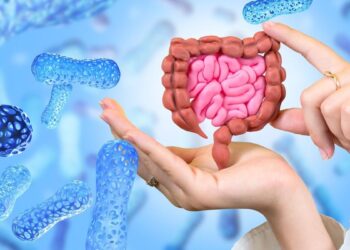The human body is an intricate network of interconnected systems, but few connections are as profound and influential as the one between our gut and our brain. This two-way communication highway, known as the gut-brain axis, is a groundbreaking field of science that is revolutionizing our understanding of health. It’s a complex system that links the emotional and cognitive centers of our brain with the functions of our gut. The health of our gut, which is home to trillions of microorganisms collectively known as the microbiome, is now understood to be intrinsically linked to our mental well-being, influencing our mood, stress response, and even our susceptibility to neurological diseases. This comprehensive guide will explore the science behind this fascinating connection, the key players involved, and the practical steps you can take to nurture a healthy gut for a healthier mind.
The Anatomy of the Gut-Brain Axis

The gut-brain axis is not a single nerve or pathway but a complex, multifaceted communication system. It is a bidirectional network, meaning that signals from the gut can influence the brain and, conversely, signals from the brain can influence the gut.
A. The Nervous System Connection: The most direct link between the gut and the brain is the nervous system. Our gut has its own nervous system, the Enteric Nervous System (ENS), which is often referred to as the “second brain.” The ENS is made up of millions of neurons embedded in the walls of our digestive tract. This network can function independently, but it is also in constant communication with the Central Nervous System (CNS) through the vagus nerve. The vagus nerve is the longest cranial nerve, running from the brainstem to the abdomen, and it acts as a superhighway of information, carrying signals in both directions.
B. The Microbiome as a Key Player: The gut microbiome is a community of trillions of microorganisms, including bacteria, viruses, and fungi, that live in our digestive tract. These microbes are not passive inhabitants; they are active participants in the gut-brain axis. They produce a variety of compounds, including neurotransmitters and short-chain fatty acids (SCFAs), that can directly influence brain function. A diverse and balanced microbiome is crucial for a healthy gut-brain connection.
C. The Endocrine System Connection: The gut and brain also communicate through the endocrine system, which is responsible for producing and regulating hormones. The gut produces and responds to a variety of hormones that can influence our mood, appetite, and stress response. For example, the gut produces a significant amount of the body’s serotonin, a key neurotransmitter that regulates mood and happiness.
D. The Immune System Connection: The gut is home to a vast portion of our immune system. Chronic inflammation in the gut, often caused by an imbalanced microbiome, can trigger a systemic inflammatory response that can cross the blood-brain barrier and lead to neuroinflammation. Neuroinflammation has been linked to a variety of mental health disorders, including depression and anxiety.
How an Unhealthy Gut Impacts the Brain
When the gut-brain axis is imbalanced, a state often referred to as dysbiosis, it can have a profound negative impact on our mental and neurological health.
A. Mental Health Disorders: A growing body of research has found a strong link between an imbalanced gut microbiome and mental health conditions. Studies have shown that people with depression and anxiety often have a less diverse gut microbiome. The disruption of the gut-brain axis can lead to a decrease in the production of key neurotransmitters like serotonin and dopamine, which are crucial for mood regulation.
B. Stress and Anxiety: The gut is highly responsive to stress. When we are under stress, our brain signals the gut, which can lead to digestive issues like irritable bowel syndrome (IBS). Conversely, an imbalanced gut microbiome can increase our stress response. For example, some studies have shown that certain strains of bacteria can produce compounds that increase the levels of cortisol, the body’s primary stress hormone.
C. Cognitive Function: The health of our gut can influence our cognitive function. The SCFAs produced by beneficial gut bacteria have been shown to have neuroprotective effects and can influence memory and learning. An imbalanced gut, on the other hand, can lead to chronic inflammation and a decrease in these beneficial compounds, which can impair cognitive function.
D. Neurological Conditions: Emerging research is exploring the link between the gut microbiome and neurological conditions. Studies have found that the gut microbiome may play a role in the development of conditions like Parkinson’s disease and Alzheimer’s disease. The gut-brain axis is an exciting new frontier for research into these debilitating conditions.
E. Impaired Sleep: The gut microbiome plays a role in the production of melatonin, a hormone that regulates our sleep-wake cycle. An imbalanced gut can disrupt this production, leading to impaired sleep. A lack of sleep, in turn, can negatively impact our gut health, creating a vicious cycle.
Nurturing a Healthy Gut for a Healthier Mind

The good news is that we have a significant amount of control over the health of our gut. By making conscious changes to our diet and lifestyle, we can actively cultivate a diverse and balanced microbiome, which in turn can lead to a healthier mind.
A. Eat a Diverse and High-Fiber Diet: The single most important step you can take for your gut is to eat a diverse range of plant-based foods. The fiber from fruits, vegetables, whole grains, and legumes acts as a prebiotic, which is food for the beneficial bacteria in your gut. A diverse diet leads to a diverse microbiome. Aim to eat at least 30 different plant foods a week.
B. Incorporate Fermented Foods (Probiotics): Probiotics are live microorganisms that, when consumed in adequate amounts, provide a health benefit. Fermented foods are a natural source of probiotics that can help to rebalance and diversify your gut microbiome.
* Yogurt and Kefir: Look for products that contain “live and active cultures.”
* Sauerkraut and Kimchi: Fermented vegetables that are rich in beneficial bacteria.
* Kombucha: A fermented tea that is a good source of probiotics.
* Miso and Tempeh: Fermented soy products that are staples in many Asian cuisines.
C. Reduce Processed Foods and Sugar: Harmful bacteria thrive on sugar and processed foods, which can lead to inflammation and dysbiosis. By reducing your intake of these foods, you create a more favorable environment for the good bacteria to thrive.
D. Manage Stress: Stress can have a profound negative impact on your gut. Incorporate stress-management techniques into your daily routine, such as meditation, yoga, deep breathing exercises, or spending time in nature. These practices can help to calm the nervous system and restore balance to the gut-brain axis.
E. Get Regular Exercise and Quality Sleep: Both exercise and sleep are crucial for a healthy gut. Regular physical activity has been shown to increase the diversity of your gut microbes, while a good night’s sleep helps to regulate all of your body’s systems, including the gut-brain axis.
F. Limit Antibiotic Use: While antibiotics are sometimes necessary, they can also wipe out the beneficial bacteria in your gut, leading to dysbiosis. If you must take antibiotics, it is important to take a high-quality probiotic supplement and to eat a gut-friendly diet to help restore your microbiome.
The Future of the Gut-Brain Axis
The field of microbiome research is still in its infancy, but the future holds immense promise for a more personalized approach to health.
First, personalized nutrition will become the norm. By analyzing a person’s unique gut microbiome, we will be able to provide highly specific dietary recommendations that are tailored to their needs. A diet that is perfect for one person may not be ideal for another.
Second, microbiome-based therapies will emerge. We will see the development of “next-generation” probiotics that are designed to target specific health conditions, from anxiety and depression to inflammatory bowel disease. These will be highly specific and clinically validated.
Third, the line between mental health and digestive health will disappear. Doctors and mental health professionals will routinely consider the gut microbiome when assessing a patient’s health. The treatment of mental health disorders will become a holistic approach that considers the health of both the brain and the gut.
Finally, we will see a greater integration of microbiome data into mainstream healthcare. The composition of a patient’s gut will be a standard diagnostic tool, providing doctors with a new level of insight into a patient’s overall health and well-being.
Conclusion
The gut-brain axis is a powerful and fascinating connection that is redefining our understanding of health. We now know that our gut is not just a digestive organ but a second brain, and its health is intrinsically linked to our mental well-being, our mood, and our resilience to stress. By nurturing a diverse and balanced gut microbiome through a high-fiber diet, fermented foods, and a healthy lifestyle, we can actively cultivate a stronger gut-brain connection, leading to a healthier and happier life.
The journey to a healthy gut is a deeply personal one, but it is also a powerful one. It is a journey of self-discovery, where we learn how our dietary and lifestyle choices directly impact not only our physical health but also our mental state. The future of health is not just about treating sickness; it is about cultivating wellness, and the gut-brain axis is the key to unlocking this potential. The revolution in health has begun, and it starts with a single, conscious choice to nourish our inner ecosystem.









Discussion about this post